SMALL SCREEN
This weekend we’re watching: the corrupted legacy of the most famous TV artist
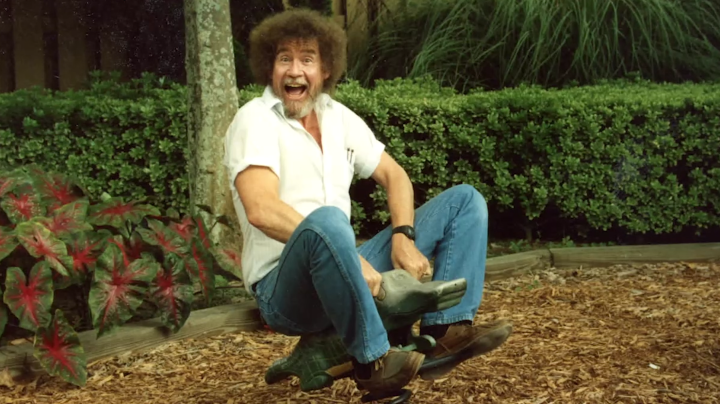
‘Bob Ross, Happy Accidents, Betrayal and Greed’ is a documentary tribute to the fluffy-haired soft-spoken painter and an investigation into how his name and likeness have been exploited since his death.
Watching Bob Ross paint for the first time, you could be forgiven for thinking you were watching a sarcastic parody. His appearance is so goofy and his voice so gentle and welcoming, surely nobody could be that sweet?
Bob Ross was a delightful man with an afro, a honeyed voice and a positively beaming disposition who became famous in the ’80s for his regular half-hour instructional television show called The Joy Of Painting, which was broadcast all over the world.
Within the space of each half-hour episode he’d make a landscape oil painting, all the while giving a running commentary of tips, relaxing mantras and words of encouragement. Whether you paint along or not, it is undeniably calming to watch and listen as he creates an epic range of misty snow-capped mountains or a sunrise on a clear morning over a lush meadow.
In 1995 Ross died of non-Hodgkin’s lymphoma, which some speculate resulted from excessive inhalation of paint thinners during filming, but he has since been revived for a second life online. Ross was generating ASMR long before the term was invented, and his eccentric loveliness has been embraced by Gen Zs (some of whom presumably have no clue who he is, having been born after Ross’s death) and turned him into one of the most memed people on the internet.
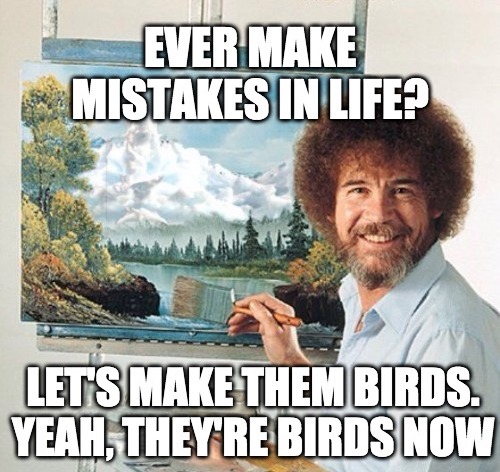
Image: Supplied
Between those who grew up with Ross in the ’80s and those who discovered him posthumously, he has a massive fan base, so when Netflix announced an upcoming documentary called Bob Ross: Happy Accidents, Betrayal and Greed, there was a fair bit of panic. Could Bob Ross, of all people, have done anything worthy of such a damning title?
Fans expected a Netflix true crime documentary to “bust this story wide open”, in which another beloved icon would be disgraced before our eyes and force us to revaluate the morality of man. Netflix gladly played into this panic – go ahead and click on this official trailer posted above. It’s little more than an animated text saying: “We want to show you the trailer for Bob Ross: Happy Accidents, Betrayal and Greed, but we can’t. Find out why.”
The documentary came out on August 25, and we did find out why – it was because of fear of legal action, a concern that surely could have been circumvented with a little more editing. The documentary’s trailer, like its title, was a marketing mislead. Bob Ross fans can be reassured that they will still love him to bits after watching it, though they might come to pity him.
The first half of the film celebrates Ross and runs through his career with the same heart-warming (and slightly tedious) feeling he exuded. The second half gives an ominous sense of the escalating corruption of his legacy, with the last quarter being a dry legal battle for the rights to the Ross name.
The betrayal and greed referred to is that of Annette and Walt Kowalski, the couple who have handled the business side of the Bob Ross brand since his TV show first aired. Annette was a student of Ross’s back when he was just a dude giving painting classes. At the time Annette was deeply depressed following the death of her son, but Ross’s charisma and warmth brought her back from the brink. A quote early in the film foreshadows her intentions: “I don’t know what you’ve got, but we have to bottle it and sell it.”
Ross’s true talent was as an art therapist. Let’s not beat around that bushy hair – Ross was a king of kitsch. He used a wet-on-wet oil painting technique known as Alla Prima (“at first attempt”) that accelerated the process and allowed him to do in minutes what other oil painters might perfect over days.
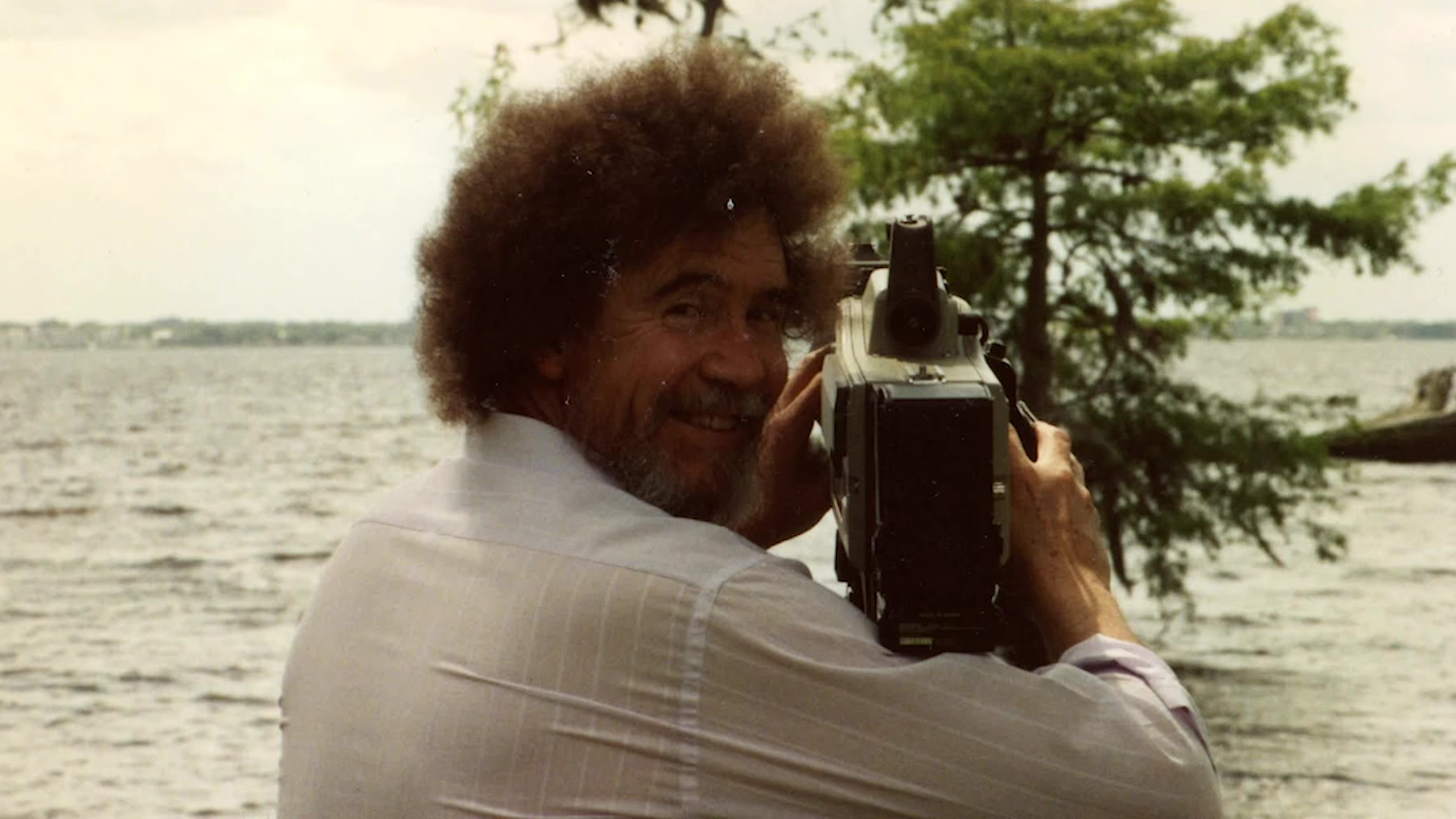
Image: Netflix
It’s noteworthy that despite interviewing several art historians, director Joshua Rofé never inquires after the merit of Ross’s work as “fine art”. Ross’s inclusive philosophy that anyone can be a painter opposed this kind of critical approach to art. He maintained that anyone could paint and referred to mistakes as “happy accidents”, which sounds like a euphemism for a child born of an unexpected pregnancy, but is cute nonetheless.
His stream of consciousness of unfiltered optimism and calming motivation helped a lot of people. According to his son Steve, who acts as the main storyteller in the film, the Bob you see on TV is a pretty accurate depiction of the real him, but he did play it up a smidge for the camera.
His afro was a perm which he would get done every few months to accentuate his already soft-spoken and cuddly, yet larger-than-life persona. The title The Joy Of Painting was not incidental; it was a subtle allusion to The Joy Of Sex, a famous illustrated sex manual of the early ’70s. Bob sought out this sensual connotation as a way to attract a female audience. He developed his soothing “liquid tranquiliser” whisper for similar reasons. He was apparently also quite the flirt, and an unlikely sex icon.
Celebrity personalities like Ross, who are loved primarily for the quality of their perceived character, are often portrayed as one-dimensional inhuman paragons of goodness. The documentary does an adequate job of acknowledging Ross’s flaws and quirks (there aren’t many, though he may have had an affair with Annette Kowalski) but what is affected strongly is our perception of some of his romantic discourses on freedom in The Joy Of Painting.
Upon discovering how the Kowalskis took advantage of Ross, some of the things he says seem almost like a cry for help.
“That’s why I paint. Because I can create the kind of world that I want, and I can make this world as happy as I want it. This is the only place I have any power.”
“I can always escape to this piece of canvas and create any illusion that I want.”
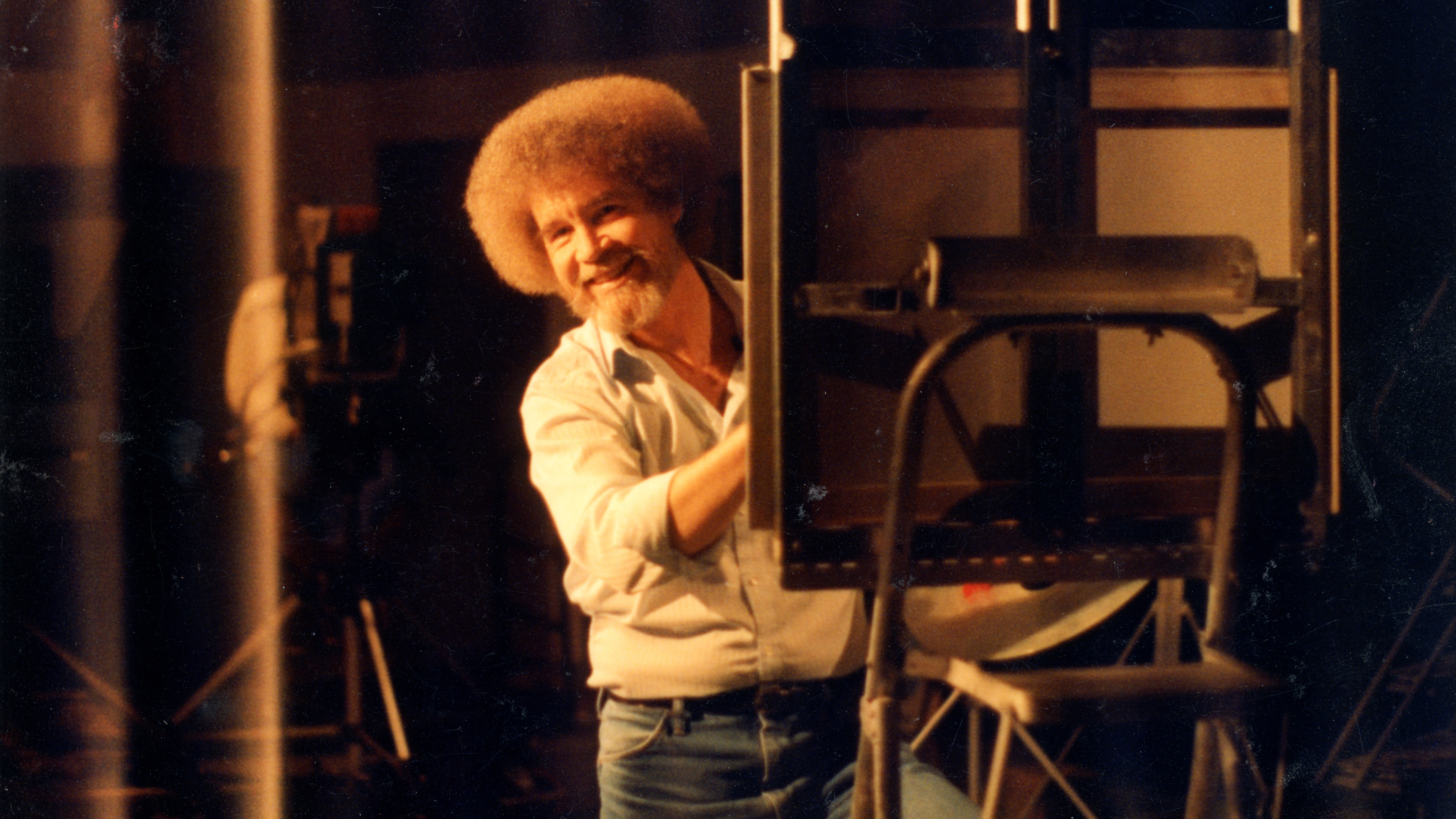
Image: Netflix
Just as McDonald’s makes a lot of its money from property rather than food, and movie theatres make money off food and not just films, Bob Ross Incorporated made a lot of its money from paint supplies and merchandise, not just the TV series itself. The Kowalskis squeezed the dollars out of Ross while he was alive but the real tragedy is how they corrupted his legacy after his death.
When he got sick, the Kowalskis realised that when Ross went, so would their business, so they formulated numerous ways to profit off of him once he was gone. They committed industrial espionage, managed to pressure his family into selling the rights to his name and likeness, and even pretty successfully hushed up his funeral (lest it affect their profit margins).
They also made sure that Annette Kowalski remained the only official authenticator of Bob Ross art, opening the door for forgery. The nature of Ross’s art is such that it is fairly easy to emulate – the whole premise of his show was to teach people to paint the way he does. Ross made tens of thousands of paintings in his lifetime, but nobody knows exactly how many, and the Kowalskis have the rights to any and all that exist.
You can be uplifted by the fact that there are people like Bob Ross in the world, or depressed that there are people like the Kowalskis. Whichever you choose to focus on, there will always be both.
Rofé’s decision to treat Bob Ross’s story like a crime drama is a controversial one. It is still a tribute to Ross, splashed with painted stills to fill in story-telling gaps and colourful footage of the kind of landscape scenes that he loved to paint; but the intention is clearly to bring the public eye to how he’s been exploited. It’s insane that, contrary to Ross’s dying wish, his son hasn’t seen a penny of the profits of his brand since his death, but it is also tragic for such a sweet man to be remembered as a well-meaning artist who got taken for a ride. DM/ ML
Bob Ross, Happy Accidents, Betrayal and Greed is available in South Africa on Netflix.
You can contact This Weekend We’re Watching via [email protected]






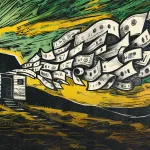












Great review Tevya.